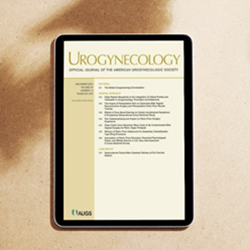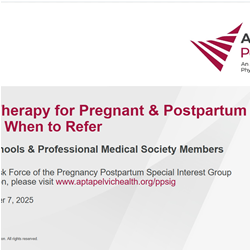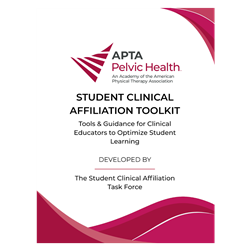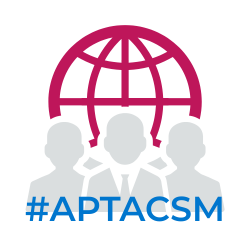Pressure, Posture, Pulls and Performance in Pelvic Floor Dysfunction
On-Demand Courses
7 Contact Hours
Pressure, Posture, Pulls, and Performance (PPPP) in Pelvic Floor Dysfunction — will give you a newfound lens through which you will examine and manage intra-abdominal pressure (IAP). The PPPP course will fill some gaps in your current practice patterns. As a seasoned clinician, you may be presented with familiar clinical information, however, your assumptions will surely be challenged as you fine-tune your skills and think through the substantial evidence supporting the clinical reasoning presented.
This course is for you if:
- You would appreciate a more thorough understanding of the many different external mechanisms by which pelvic floor dysfunction (PFD) can arise
- You’re a lifelong learner open to gaining knowledge and fine-tuning your skills to better support your patients
- You feel limited in your evaluation and treatment options and want to provide a more holistic approach for patients with PFD
This course will provide evaluation and treatment techniques you can take away and use to improve your very next evaluation. Enroll now for a unique opportunity to learn at your own pace and receive direct responses from the course instructor via the question and comment sections.
- Lifetime access to online curriculum.
- 7+ hours of clinical information presented via recorded lectures and videos.
- Printable Slide Shows, Resources and Literature Reviews (over 60 pages).
- Easy-to-reference citations throughout the course for further individual study.
- Opportunity for direct access to Kathe via course comments and questions answered weekly.
This course is approved for 7 contact hours in New Jersey through January 2026 and California until Dec 15, 2024.
CEUs for physical therapy licensure may be obtained in several ways. Some states will grant CEUs when there is approval in other states, either automatically or by petition. Many states do not require pre approval.
Requirements vary from state to state, and it is the responsibility of the licensee to confirm their state’s policies.
This course is designed for Pelvic Health, Orthopedic, and Sports Practitioners, presenting management strategies able to be implemented by practitioners from many rehabilitation disciplines. Previous pelvic floor training is recommended but not required. This course is open to Physical Therapist (PT), Physical Therapist Assistant (PTA), 2nd/3rd Year Student Physical Therapist (SPT)
Upon completion of the web-based learning curriculum the participant will be able to:
- Identify three PFD risk factors in both high-performance athletes and postpartum women.
- Identify four elements that contribute to IAP generation.
- Identify three components of dysfunctional breathing and name a screening technique for each.
- Appreciate three types of diaphragm muscle mobility assessments and describe the manual evaluation techniques for each.
- Teach two postural modifications that could affect pelvic floor recruitment and IAP generation.
- Appreciate the prevalence of abdominal wall adhesions and dysfunction in your PFD patient populations.
- Identify two myofascial and joint changes that could restrict PF function.
- Describe or demonstrate three types of abdominal wall assessments for patients struggling with IAP management.
- Teach three types of exhalation/voicing strategies that can be used with exercise and functional activities.
- Differentiate IAP changes in running and weightlifting.
- Differentiate treatment program design for overactive vs. poor force production of the pelvic floor muscles in active clients with PFD.
- Identify and teach two evidence-based techniques that could be used as proxy measures of IAP during incremental exercise.
- Teach walking and running drills/therapeutic exercises based on your evaluation findings.
About the Instructor
 Kathe Wallace, PT, Pelvic Resources
Kathe Wallace, PT, Pelvic Resources
Kathe Wallace PT, BCB-PMD, is an internationally recognized clinician, author and innovative teacher in the field of pelvic floor and pelvic health rehabilitation. A physical therapist since 1976, Kathe turned her focus to the evaluation and treatment of pelvic floor dysfunction in 1988.
10% OFF COUPON CODE FOR MEMBERS ONLY Members of the Academy of Pelvic Health Physical Therapy save 10% on this course. This course listing contains affiliate links. The Academy of Pelvic Health Physical Therapy may earn a commission from purchases made via affiliate links. This course is worth 7 Contact hours (CEUs are currently approved by California, Nevada, and New Jersey). Click below on "Enroll" to access detailed course information and the most up-to-date course pricing and tax calculations. This course may not be eligible for other APTA Pelvic Health-run discount promotions. By clicking below, you will be rerouted to the affiliate vendor's website to complete your purchase.
Price: $280






